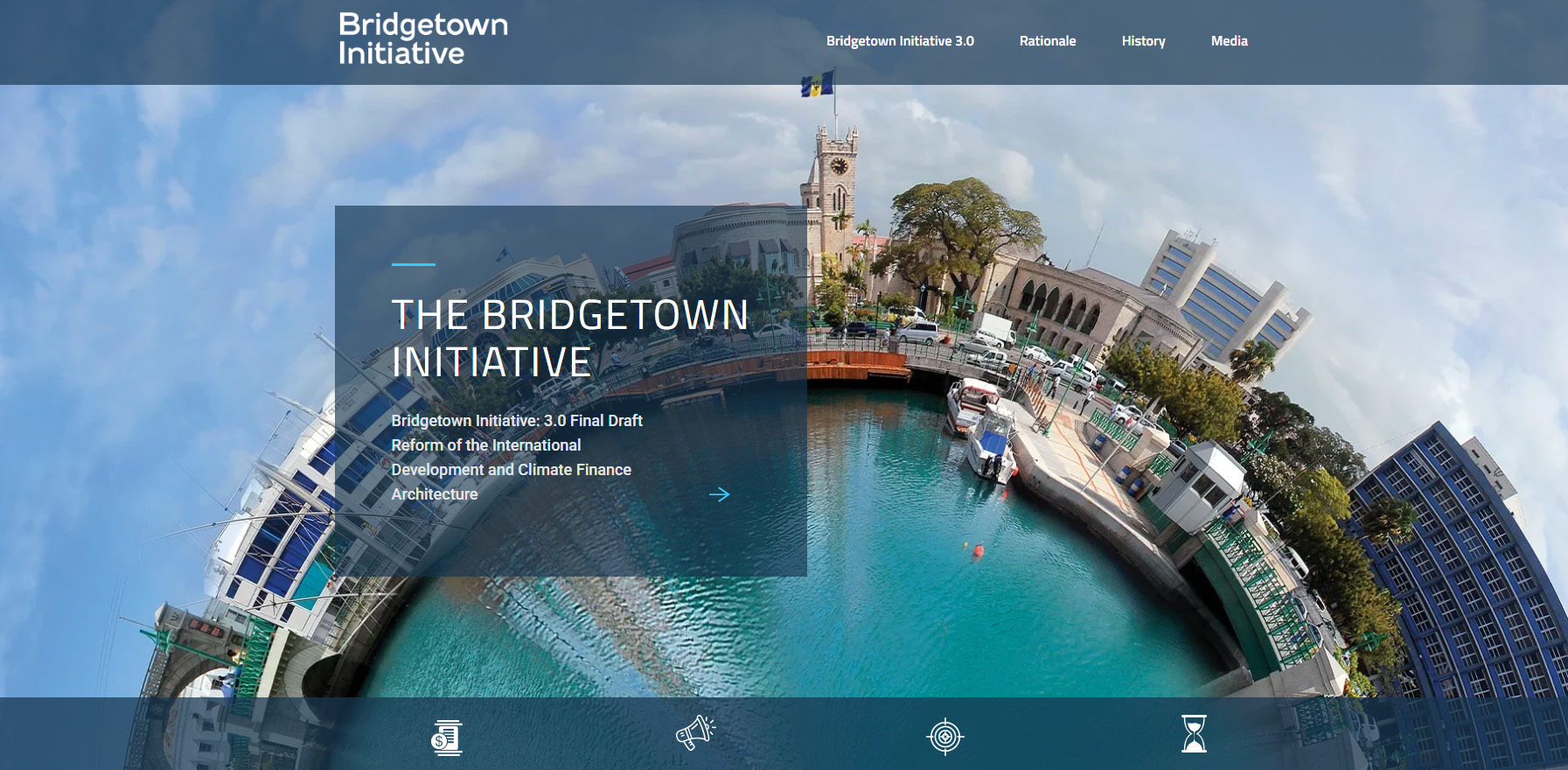 The Bridgetown Initiative website
The Bridgetown Initiative website
Reparations for slavery have become a Commonwealth issue, as the Commonwealth increasingly has its ‘moment of reckoning’ with its origins in the British Empire. This was underlined by Sir Hilary Beckles at the Institute of Commonwealth Studies, and the formal endorsement by the African Union of the CARICOM campaign. The substantial pressure on the British Government in the lead up to the Commonwealth Heads of Government meeting in Samoa in October 2024, culminated in the final communique’s statement:
“noting calls for discussions on reparatory justice with regard to the transatlantic trade in enslaved Africans and chattel enslavement … agreed that the time has come for a meaningful, truthful and respectful conversation towards forging a common future based on equity.”
The British Government may be relieved that no formal figure was attached to these discussions. But moral justice and equity embedded in the campaign for reparations demand public policy attention. Could British policy makers and wider society, either in the UK’s bilateral relationships with Caribbean states or within the wider Commonwealth framework, learn from other countries whose citizens benefitted from similar injustices and unequal exchange relations? What are their states’ approach, how do these respond to slavery, colonialism and reparations? Can the issue be adequately addressed without parallel substantial reform to the international financial system, as articulated in the Bridgetown Initiative?
The debate around reparations and redress, led by the CARICOM group of Caribbean nations, focusses primarily on the state-to-state relationship in calls for reparations. However, this risks the continued marginalization of First Nation and other indigenous communities. These experienced colonial violence and genocide in direct interaction with often fatal consequences and now seek substantive redress. To what extent have been any serious attempts or formulations to engage with descendants of these communities around the issue of reparations for historic injustices? Does the Canadian approach to address historic wrongs around educational and hospital schools offer important learning outcomes?
Scholars, doctoral students and post-graduates, and research analysts are invited to submit papers on the range of cultural, legal, political, social, economic and moral issues involved in historic and contemporary reparation. These might include:
- The comparable response of other European former colonial powers for reparations (Belgium, France, Germany, Portugal, Spain, Italy);
- First Nations and Indigenous Communities and reparations;
- National and regional initiatives for reparation and restitution;
- Debate and discourse on African calls for reparations;
- Restitution policy and process of historic cultural artefacts;
- Reparations and international humanitarian law;
- Reparations and education policy and practice;
- Social and economic dimensions of reparations (historic inequalities, policy proposals for affirmative action).
Early career scholars, particularly those in Commonwealth countries in the Global South, are particularly encouraged to apply.
Contributors are invited to submit an abstract of maximum 500 words, together with a short cv, to Professor Sue Onslow ([email protected]) by 31 May 2025. Those selected will be notified by 15th June 2025, and asked to submit their completed article (4000-6000 words) by 1 November 2025.



